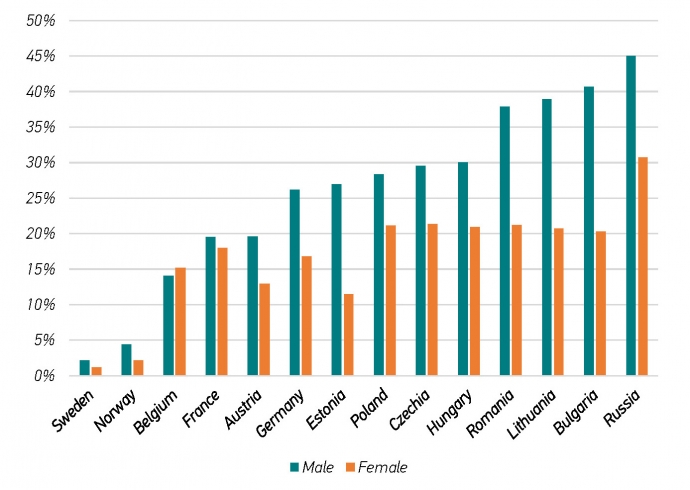GGP at a Glance No. 30 / October 2016
Download GGP_AT_A_GLANCE_030-Sep-Oct-2016.pdf
Gender equality varies considerably across Europe. In many countries, there is still a strong belief intraditional gender roles as can be seen from the figure below. In Central and Eastern Europe, thereis still a large proportion of the population that believes men shoud be prioritised for jobs when thereis a scarcity of work. This is in stark contrast to Scandinavia and Western Europe where such viewsare much less common. The big difference between countries such as France and Bulgaria howeveris in the views of men and not women. In France, 18% of women believe men should get priority forjobs when work is scarce and in Bulgaria it is only a little higher at 20%. However when we look at thesame figures for men they are 19% and 41% respectively. This would suggest that the biggest differencebetween Western Europe and Eastern Europe is men’s attitudes towards gender equality. The largedifference in attitudes between men and women in Eastern Europe could also be causing very differentexpectations about family life, careers and relationships as men seek traditional arrangements whilstwomen seek gender equality.
The percentage who agree with the statement that “When Jobs are scarce, men should have more right to a job than women”

Generations and Gender Survey, Wave 1. Population aged 18-79 years old who either agree or strongly agree with the statement that “when jobs are scarce, men should hve more right to a job than women”